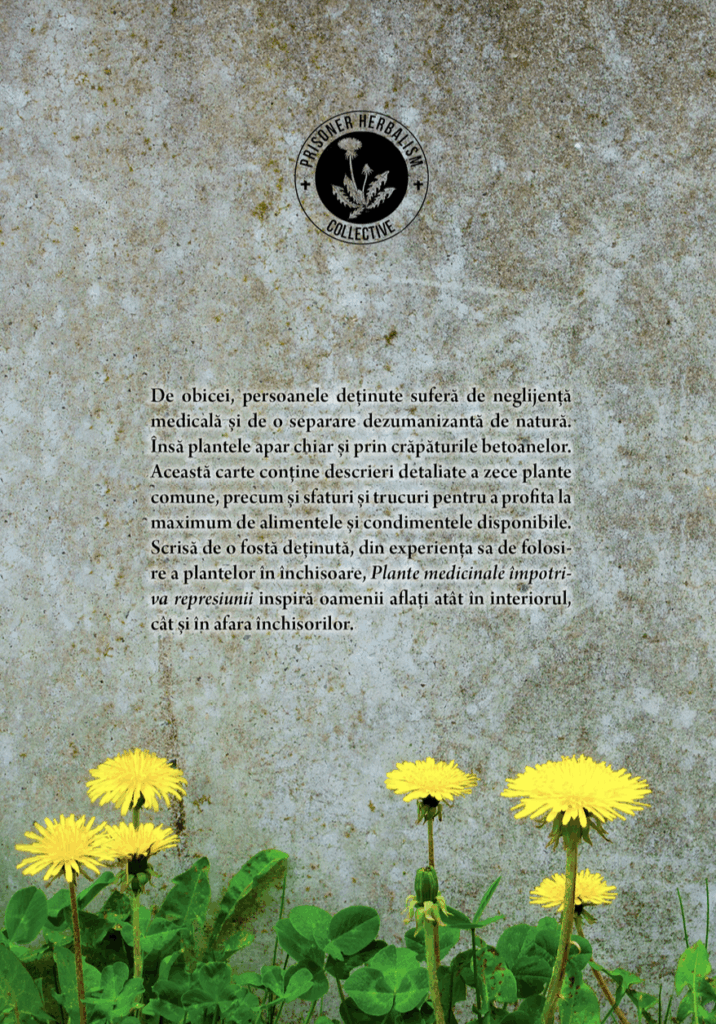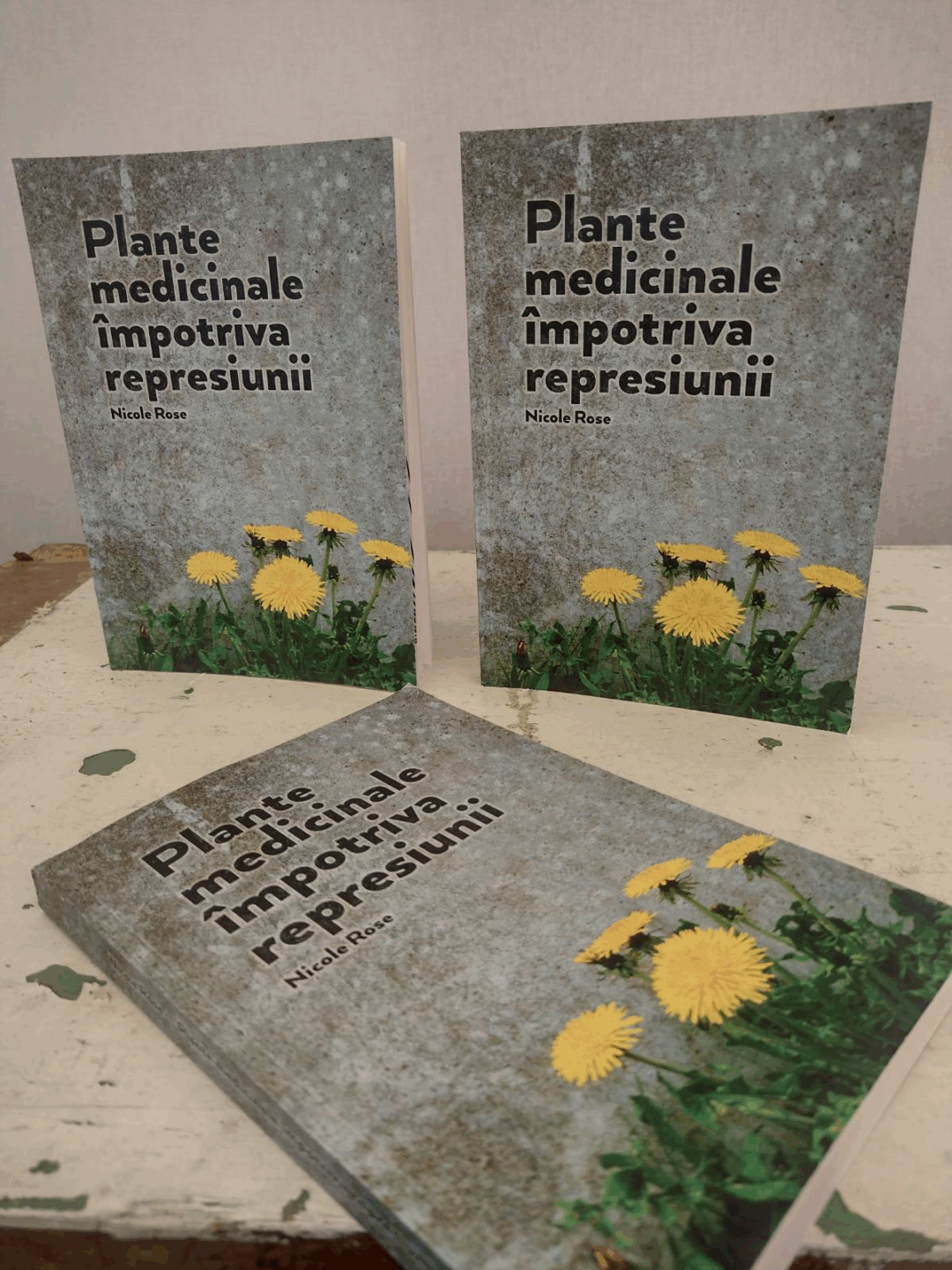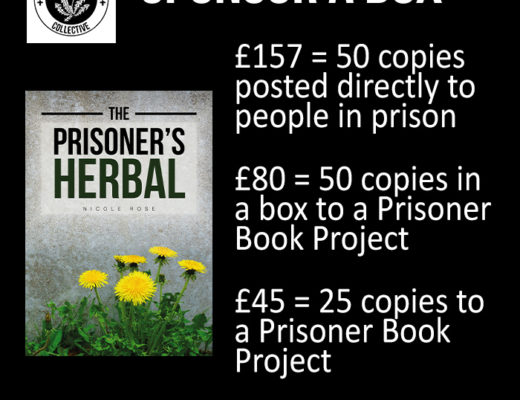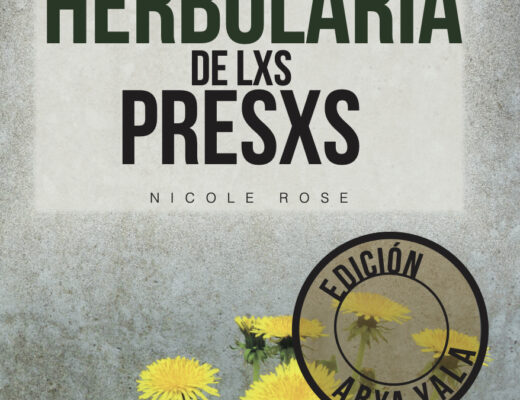I’m so moved that comrades in Romania translated the Prisoner’s Herbal book for distribution in their country! This text shares their reasons behind the project.
You can buy the book as an ebook (PDF) from the store here: https://solidarityapothecary.org/product/plantamedicinale/
To access a physical copy of the book, please email: pl******************@****on.me
All proceeds go to distributing free copies of the Prisoner’s Herbal to people in prison worldwide.
Plante medicinale împotriva represiunii
In 2024 we saw so clearly how much the far right dominates Romanian politics and how it tries to take over the discourse on “nature” and “natural medicine” in a “call” to fascism.
We heard how anti-fascists are harassed and imprisoned for their activism. We watched in despair the genocide in Palestine. We felt the earth heating up in the climate disaster we are living in and we remembered how all these threads are woven together and how our struggles against them must be a common struggle.
That is why, in 2024, we decided to translate Nicole Rose’s book “Prisoner’s Herbal” into Romanian, a book which talks about medicinal plants and care, the fight against oppression and repression, all presented in a practical and accessible way.
We managed to finish the translation and printed the book in time for the “Plants, Mushrooms and Resistance” gathering which took place on June 5-8, 2025, in Cluj, Romania, and brought together radical people and initiatives working with medicinal plants and mushrooms. A large number of people participated, over 80, from different geographical areas, but with similar views on social and ecological justice, horizontal organizing, and mutual aid. Equally surprising was the number of people who participated in the discussion we organized for the launch of this translation. Nicole, the author of the book, also joined online. Below are some of the ideas discussed at this meeting. We hope they will spark further discussions and initiatives.
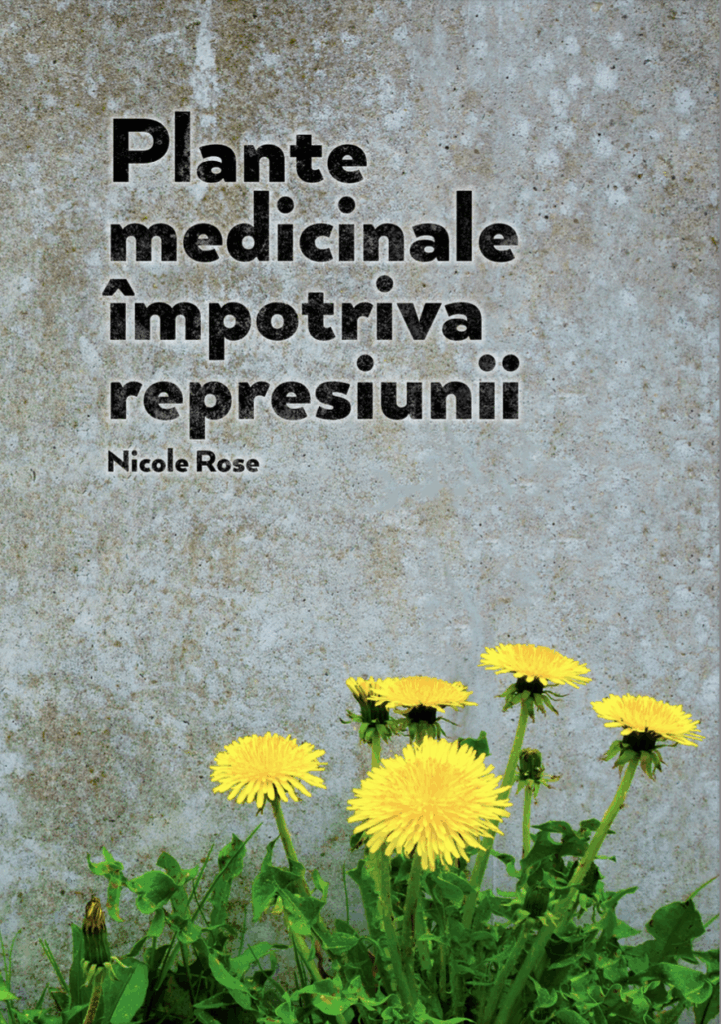
Solidarity Apothecary
Nicole spoke about her own experience in prison, which inspired the book, about prison conditions, medical negligence, and how prisons separate you from the wild with concrete walls. But, as she says and as the book cover shows, medicinal weeds grow through the cracks of the concrete. The book contains detailed descriptions of ten plants commonly found in prison yards and their use in the prison context, with limited resources. It is distributed free of charge to prisoners around the world. So far, approximately 5,000 copies have been distributed in English; it has been translated into Spanish and Italian, and translations into other languages are in progress.
Nicole also spoke about Solidarity Apothecary, an initiative she started to produce and distribute herbal remedies to people facing state violence and repression. She sends packages of herbal remedies to those going through the judicial process, those recovering from prison, families of detainees, and thousands of asylum seekers facing violence at the border in Calais, northern France.
The platform also hosts online courses on medicinal plants and traumatic stress, as well as practical workshops on medicine making. More about Solidarity Apothecary at https://solidarityapothecary.org
“Plants supported me throughout my sentence,” said Nicole; and plants can support so many people affected by repression, capitalism, racism, and patriarchy. Ultimately, she points out, “the solution is not herbalism in prison, the solution is no more prisons”; we are fighting for this, and part of the fight is not to abandon incarcerated people. Because mutual care and support are fundamental to the world we want.
As we said in the foreword to this edition, state violence affects people’s bodies. Resorting to various forms of repression, this violence is all the more visible in prison, where medical negligence is more common than care.
Prisoners in Romania
Next, we talked about conditions in Romanian prisons. These are things that so many people have experienced, but here they were recounted from T’s experience, who was held in pre-trial detention a few years ago.
Pre-trial detention, to a certain extent, like prisons here, is known for its horrible conditions in the cells and nutrient-deficient food. If you have a specific diet, tough luck, you can’t have your needed menu. You are entitled to a “walk” between concrete walls for one hour a day.
The guards are experts in techniques of domination and dehumanization: humiliation, waking you up for your “walk” at 6 a.m., cutting off the hot water when you are in the shower, turning off the lights in the evening when you want to read a book. What’s more, they maintain and amplify a homophobic and transphobic culture. As we said earlier, medical care is either completely lacking or of poor quality.
In Romanian prisons, you can get the “privilege” of working, most of the time for a ridiculously low salary. And in some prisons you can even work somewhere outside the walls, like the one in Timișoara, famous for taking prisoners out to work around the city, in green spaces, on different municipal works, and even for the construction of private restaurants. In exchange for the exploitation, you get greater access to different plants that grow in the city or wherever you are taken. The pay for prison work is low, but the prices in the prison shops are high. You make do as you can.
Furthermore, there is no union organization for prisoners. The only organization in Romania is Prison Fellowship, which is religious and aims to “save souls”. In the prison system, the only ones who have the right to unions are the guards. There have been protests in prisons against the bad housing conditions and overcrowding; prisoners have set fire to sheets and climbed onto roofs. Some individuals have taken the state to the ECHR (European Court of Human Rights) and won; they were not released, but received financial compensation from the state instead.
Capitalism devours even the memory of the repression of anti-fascists. We mentioned in passing the fate of Doftana prison, also known as the Bastille of Romania. Used until the 1960s to imprison political prisoners, communists, and anti-fascists, among others, it was later turned into a museum and then, after 1990, abandoned. In 2022, it was leased by a businessman with the aim of turning it into a luxury hotel with “finishing touches reminiscent of the prison architecture program”.
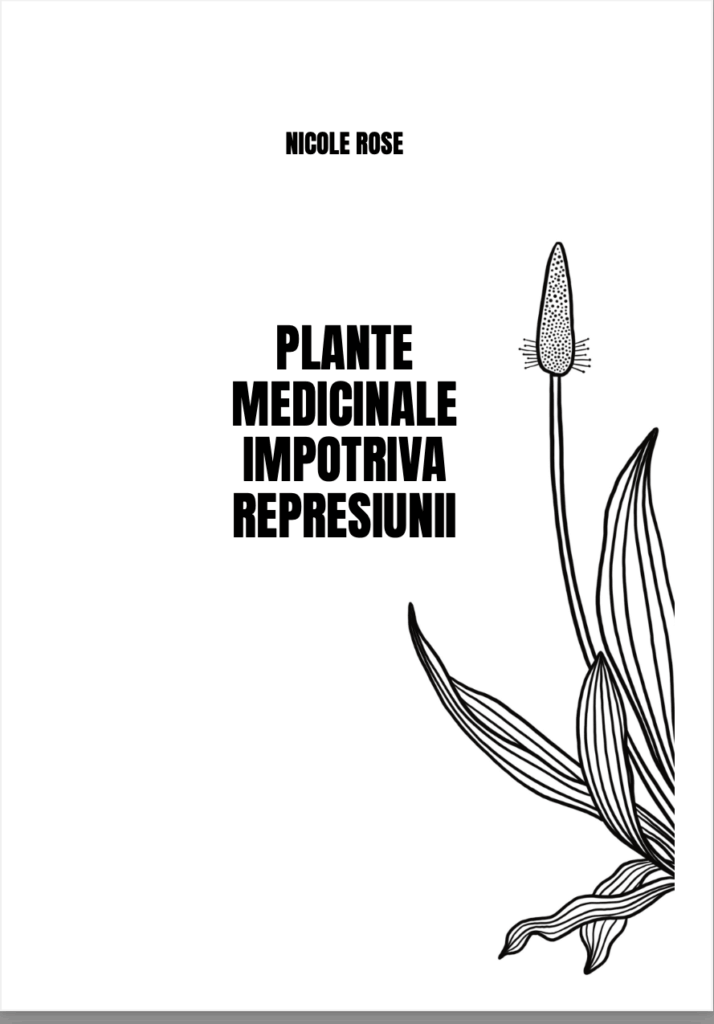
Prisoners outside prisons
Next, we talked about what made us translate the book. For us, it was a small gesture of solidarity that we could make, to bring this information in a language accessible to Romanian speakers. A book is something that can go through prison walls, at least in Romania. And personally, we wanted to do this for our own friends who are in prison.
The book is primarily dedicated to people in prisons, but it is not limited to them; the information can be useful to all “prisoners”, to anyone who in one way or another have been deprived of their freedom and health, whether because of the state, capitalism, patriarchy, ecological disaster, or other traumas they have experienced. The plants described in the book are found everywhere, at least in this geographical region, both inside and outside prison walls, in crowded cities or in the countryside. And the remedies recommended in the book can be made with few resources.
The state and society, in Romania and elsewhere, are becoming increasingly fascist and militarized; anyone who opposes them is a potential future prisoner. Simply participating in an act of solidarity with political prisoners is criminalized by state institutions, and people are persecuted, harassed, and fined for simple gestures such as displaying a banner.
Let us remember that the budget of the Romanian Intelligence Service is 10 times higher than the average for NATO countries, and that Romania has the highest number of secret service employees per capita in the entire European Union.
The “new” government is in austerity mode, and started to cut down on social security, the crumbs of what still was, taking away medical insurance for the unemployed, persons on maternity/paternity leave, and many other already vulnerable people. Meanwhile, last year they raised the budget for the army by 25%.
Neoliberalism in recent decades has made access to healthcare increasingly limited —especially for oppressed, impoverished people — so that, whether in prison or outside, information about remedies that can help with medical problems becomes very useful. Plants are there when you don’t have access to other medicines or remedies. They have a direct effect on our wounds and ills, supporting us in chronic and acute conditions; they help us relax and recover.
Anti-repression solidarity
The discussion then moved on to practices of solidarity that we can engage in, as individuals and as groups. Below are some of the ideas that were brought up:
- send postcards or letters to prisoners;
- send books to prisoners;
- send other items to prisoners (look up specific information about what you are allowed to send to prisons);
- visit and show your support. T. recounted how much it meant to him when his friends came and made noise in front of the prison fence.
- organize fundraisers for legal expenses;
- offer support to other people targeted by the police state, such as refugees;
- organize a helpline or a telephone line dedicated to emotional support for detainees;
- write and distribute legal guides;
- support organizations that offer support, such as ABCs (Anarchist Black Cross);
-share resources; some mentioned: practical guides written by Bristol ABC https://bristolabc.org/resources/ + brochure by the Romanian collective Nimeni nu e ilegal (No one is illegal) “Together against borders, states, and wars!” https://pagini-libere.ro/brosuri/together-against-borders-states-and-wars-nimeni-nu-e-ilegal/ - other actions of solidarity with people imprisoned in other regions.
Following the discussion, we decided to make a banner in solidarity with Maja, the queer anti-fascist imprisoned in Hungary, and then distributed it in the Free Maja campaign.
A rather difficult and intense discussion ended in practical ways, with a gesture of solidarity, with ideas and a little hope. And all these continue through the book. In the first phase, we published 100 copies in Romanian, which we will distribute to prisons in Romania, to friends who are incarcerated, but also to other prisoners outside of prisons. Some books will also circulate through local distributors and will be given in exchange for donations to cover the postal costs of distributing the books to prisons.
Herbalism against repression!
Together against prisons, borders, and states!
